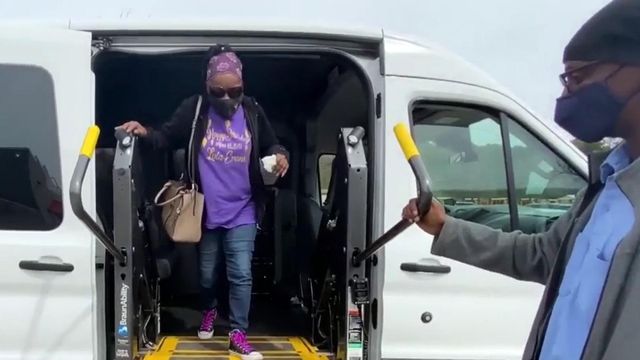Duke Health program provides food, transportation, money to help people survive pandemic
In the past six months, a program run by the Duke University Health System has helped support more than 30,000 people who have COVID-19, were exposed to the coronavirus or are high risk from the virus.
Posted — UpdatedThe Duke Health COVID-19 Social Support Program makes sure they have food; masks, gloves and other protective equipment; access to medical and vaccination appointments; and money to pay their bills.
"Many of the individuals that we serve come from historically marginalized populations, who are very desperate, were in desperate situations," said Fred Johnson, vice chief of Duke's Division of Community Health.
Duke partners with several community organizations – La Semilla, El Centro, Project Access of Durham County, Gang Free, Slice 325, PEACH and TRY – to provide services that help people take the proper steps, like isolating after an exposure, while not having to worry about how they'll eat or pay the bills.
To date, the program has provided 62,000 prepared meals, more than 10,000 boxes of PPE and $2.5 million in financial assistance.
"Eligible [individuals] had to be isolating. So, you could only get services that equated to roughly 14 days, which is the quarantine time," Johnson said.
Jermaine Barnes drives seniors to and from medical appointments as part of the program.
"With most of these disabled and elderly, with the pandemic that is happening, it’s hard for them to get out and get around and do things. They’re tired of sitting in their house just doing nothing. So, getting them out to see their doctors, get vaccines, everything, it’s heartwarming," Barnes said. "Without a program like this one, I hate to say it, but I believe there would have been a lot more deaths."
The program was launched in September with $3.2 million in CARES Act funding, routed through the state Department of Health and Human Services. It initially served Durham, Vance and Granville counties and later expanded to Wake, Franklin, Warren and Nash counties.
Johnson said the program was supposed to last only three months, but another $4.2 million state grant has kept it going. But that funding runs out at the end of March.
He said he hopes health insurance companies will step in to provide funding so it can continue.
Related Topics
• Credits
Copyright 2024 by Capitol Broadcasting Company. All rights reserved. This material may not be published, broadcast, rewritten or redistributed.





